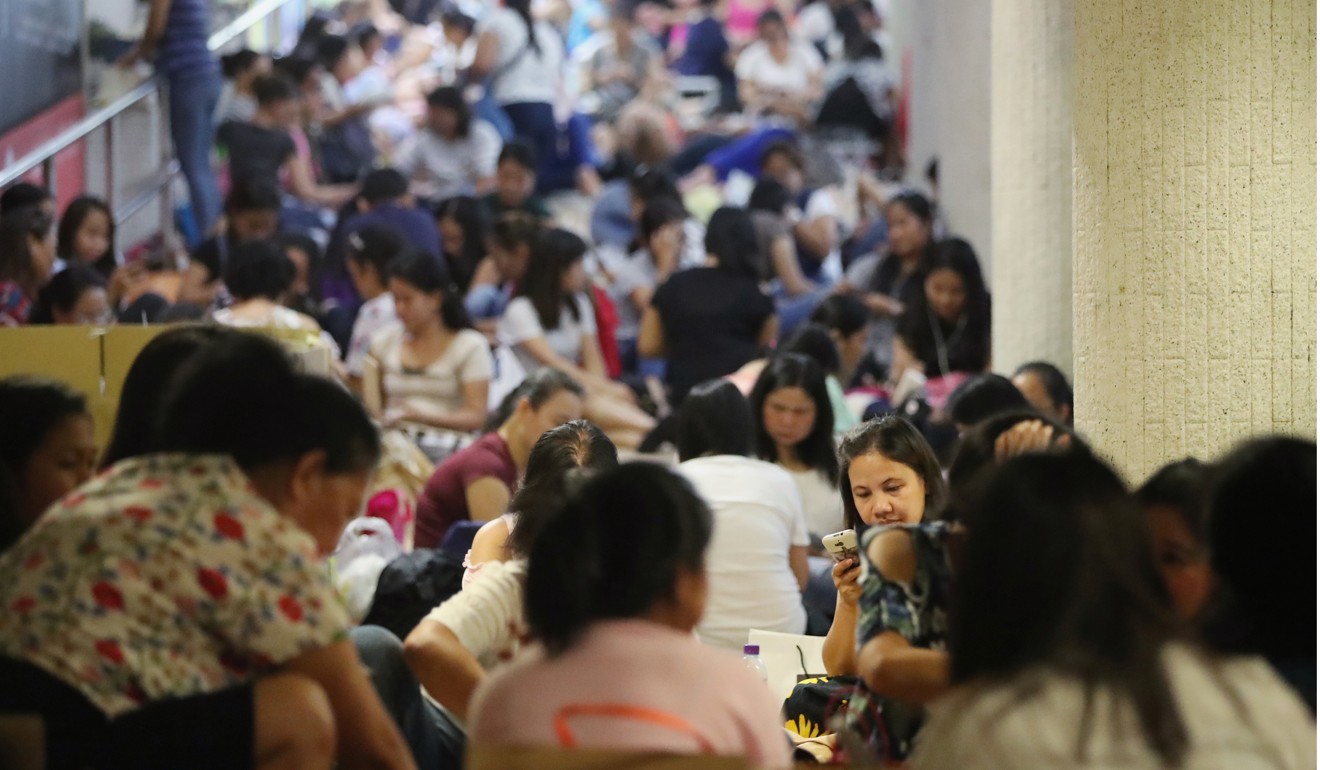
Where domestic helpers get paid the most and least in Hong Kong, and employers’ growing generosity
Survey by HelperChoice that shows the top- and bottom-paying districts on its platform also reveals that the average salary offered by employers is increasing faster than the government’s minimum wage
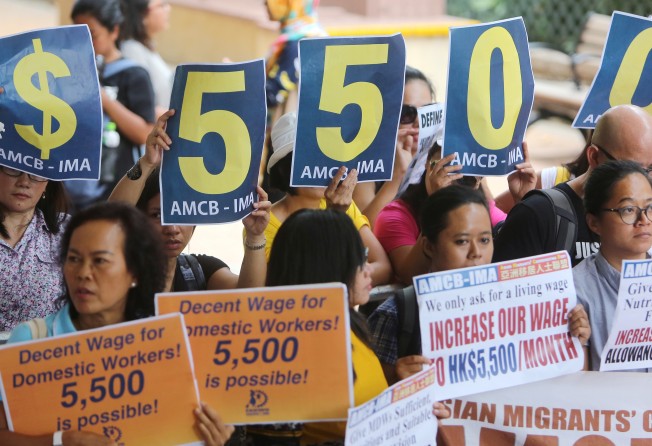
Hong Kong’s army of domestic helpers, which numbered 370,000 last year, play a vital role in keeping the city in motion. But for many, surviving on the legal minimum allowable wage of HK$4,410 (US$562) a month is a struggle.
This month a survey by HelperChoice, an online platform that matches employers with domestic helpers at no cost to helpers, released its own wage findings.
It analysed data from 2,000 job ads posted by its users from October 1, 2017 to July 31, 2018. The results were encouraging: for the second consecutive year, the average salary offered by employers in the city increased faster than the legal minimum allowable wage.
The survey found the average salary offered by employers was HK$4,799, a 5.5 per cent increase, or HK$254, over the results of its 2017 survey. The legal minimum allowable wage increased 2.3 per cent in October last year. The consumer price index rose 2.5 per cent over the same period.

However, the survey also revealed salary disparities between different Hong Kong districts.
While some employers in Happy Valley and Sai Ying Pun offer up to HK$8,500 a month, most employers in Kwun Tong do not offer more than the HK$4,410 minimum wage.
The top five districts with the highest wages were Southern, Central and Western, the Islands, Sai Kung, and Wan Chai. The average salary for these districts was HK$4,881, or HK$471 above the minimum allowable wage. The average salary in the Central subdistrict was HK$5,595, 27 per cent above the minimum allowable wage.
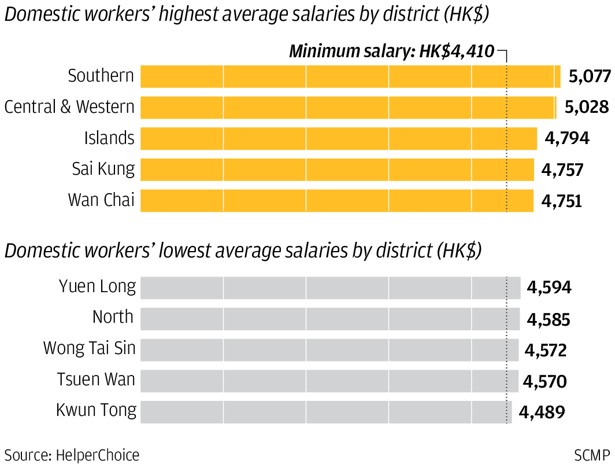
The survey also investigated the five districts with the lowest average salaries.
Last year Siu Sai Wan offered the lowest average salary while this year, the districts paying least are Yuen Long, North district, Wong Tai Sin, Tsuen Wan and Kwun Tong. These districts have a collective average wage of HK$4,562, just HK$152 above the minimum salary.
HelperChoice also investigated living arrangements and found most job offers (70 per cent) included a private room, 16 per cent a room shared with a child and 10 per cent a room shared with another domestic worker. Wong Tai Sin and Kwai Tsing had the highest rate of shared accommodation.
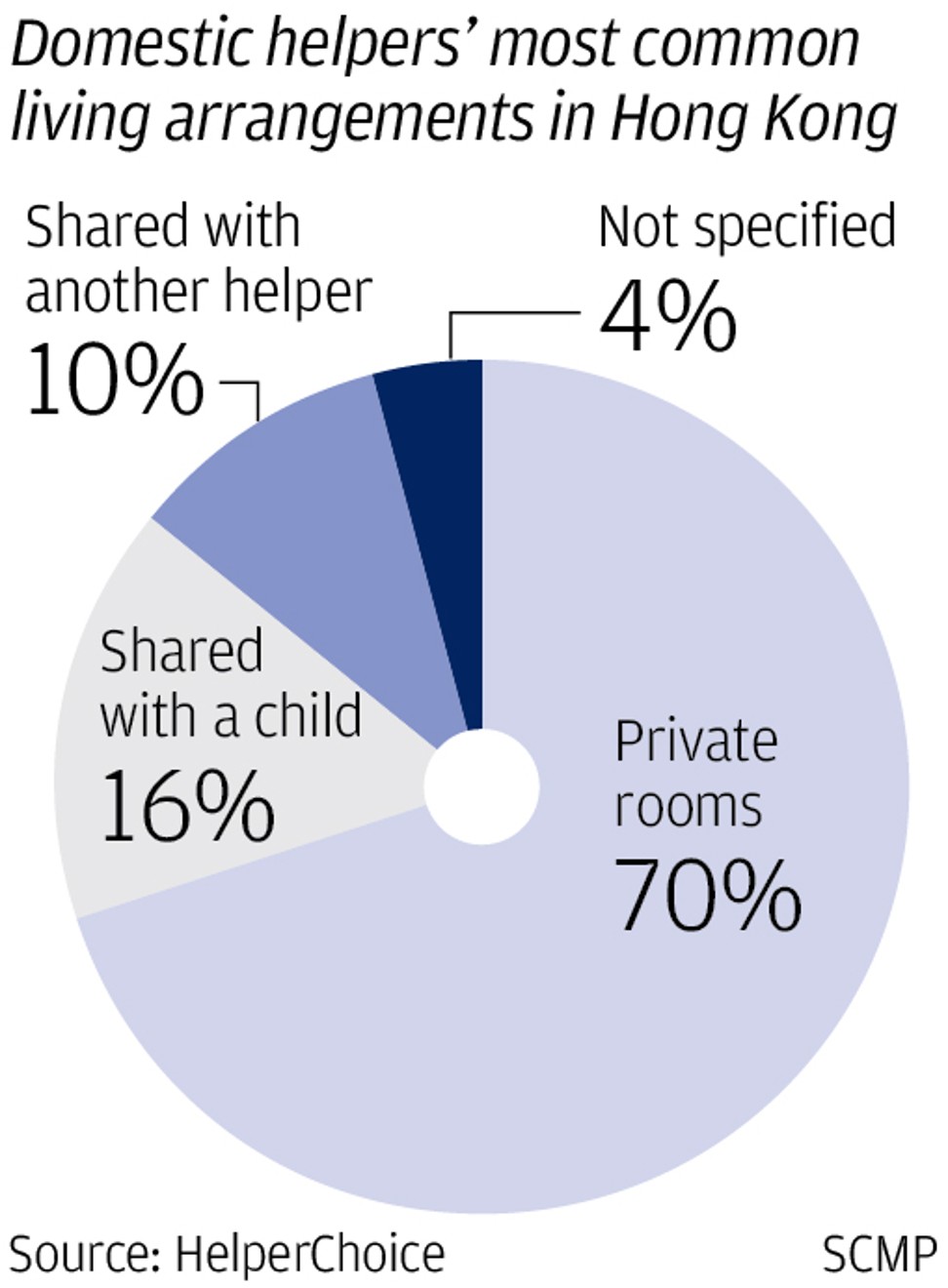
Alexandra Golovanow, chief executive of Helper Choice, says the survey results are encouraging.
“We’re happy to see that the increase of the average salary is for the second year in a row higher than the increase of the minimum wage. It is very encouraging and we hope it will continue in that direction.”
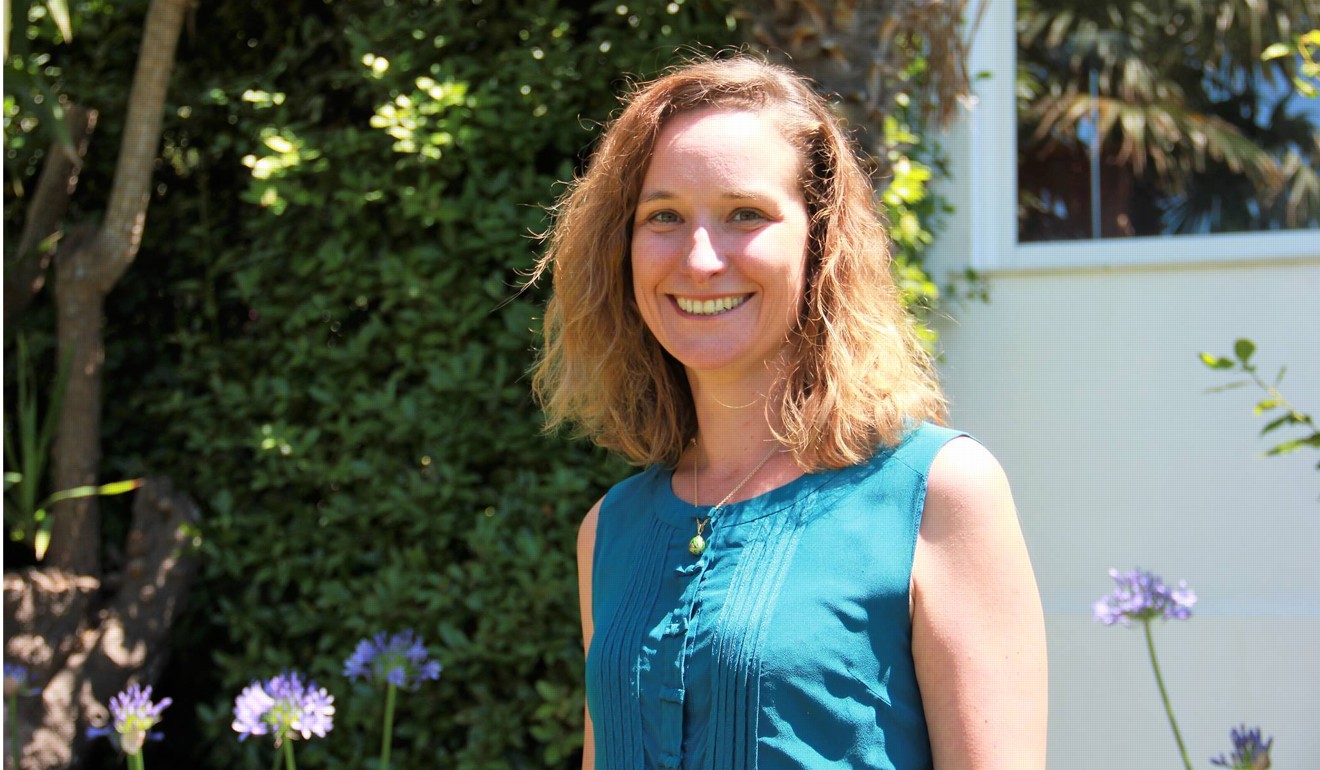
While HelperChoice does not charge placement fees, rocketing charges from recruitment agencies in the city mean workers are spending over a third of their monthly wages to pay back loans and fees, more than double the amount five years ago.
According to a survey by the charity Mission for Migrant Workers, expenses, related loans and agency fees accounted for 36 per cent of helpers’ wages in 2017, compared with 13 per cent in 2013. Another 23 per cent went to general living costs including food, clothes and accessories, communications, transport, toiletries, and donations.
Of the 370,000 domestic helpers in Hong Kong last year, 48 per cent were from the Philippines, 49.4 per cent were from Indonesia and 1.3 per cent were from Thailand, according to government figures.